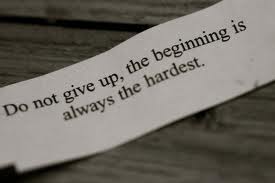Remember that agents are individuals, and perhaps more individualistic than the key protagonists in many other professions. Just as many are instantly recognisable, so they also have very individual tastes. It follows that what does not appeal to one, may well appeal to another.

‘There are as many opinions out there as there are agents prepared to read your work – keep going until you make a connection.’
Simon Trewin
So if your first choice does not immediately sign you up, there may be others who think you are the best thing since sliced
bread! But they will only find out about you if you have the gumption to keep going. In the long run, getting an agent on your side is invariably worth the effort.
‘We receive at least 20 unsolicited manuscripts a day; our books are full, and to be honest we are looking for reasons to say no – but I still get such excitement from a really new voice writing something that grabs my attention. I have known the world stand still as I ignore the rest of the post and just read on until I have finished. When that happens it’s really special – and I will fight to get that author published. Sometimes it takes years, but if I believe in an author I will keep going.’
Carole Blake, Blake Friedmann
Case Study
“So, how do you feel about publicity?” asked my brand-new literary agent, the one who’d told me excitedly that she “couldn’t put my manuscript down”. It was this enthusiasm, along with comments along the lines of “I see you as the next Mary Wesley” that made me think, not “There! I KNEW I was terrific!” but, well, perhaps, after all, I’d written something that others might want to read. But what do I know? I’m published, but not as a novelist, and I don’t live in “the literary world”, although I do know something about how it works.
Guided by her, I spent six months editing my ms – but willingly, because if you write for the love of it, rather than to bestow your precious pearls on the world, you’re quite happy to be guided.
This is where things came unstuck. Although she kept saying she loved the way I wrote, she didn’t like my opening chapter, seemed diffident about the alternative I sent in, then questioned the direction of my plot. I lost confidence, and began to struggle. Although I emailed her to reassure her that I was “pressing on”, a four-month period of silence was followed by an email, out of the blue and copied to four strangers, saying that she was moving on, that she’d enjoyed working with me, and good luck in the future.
Whilst I’m in no position to comment on my agent’s judgement (either of my own ability or of the market for middle-class, middlebrow fiction where there’s no helpful “celebrity” angle), I accept that, quite simply, my first novel just wasn’t good enough. But I admit I was disconcerted by my agent’s seemingly instant acceptance of its failure, in view of the fact that I had been the restraining one in terms of enthusiasm. There is no doubt that she was always friendly, and I know she feels she did a lot for me.
Call me slow, but I was never exactly sure in which direction she was attempting to steer me. She was very clear that she knew “the book market”, but when it comes to subject matter, it is a fact that she is younger than me, and (was then) single and childless: I felt confident that I’d lived in the real world, both professionally and emotionally, and had a lot of experience of the particular market towards which she was aiming me: women’s book clubs.
In terms of our working relationship, of course I’m aware that she had people more valuable than me (by that I mean bringing in money!) to look after, as well as other new writers. I myself have a pretty busy life, so I hope it doesn’t sound too pathetic to say I assumed our first meeting might be over lunch, or something similar! But we met twice in her office, and each time she made it clear she was going out, so didn’t have too long, which made it hard to relax with her. I was never introduced to anyone else at the agency, and no contract was ever discussed. I think it’s fair to say that the rejection of my novel placed a question mark over her judgement as well as my ability; so I needed her reassurance that she really did know how I should present my writing to a publisher – but I was too wet to ask.
Maybe this story exposes my naiveté as well as a distaste for confrontation, but I honestly don’t think I expected too much from my agent. I know about dealing with both failure and success, but this experience has left me confused. The writer’s job is to get on with the writing; and I used to write at a gallop, neck stretched, nostrils flared, but now I flounder. I’ve lost my momentum.
But I still write every day – and, for now, my challenge is to simply re-learn how to write for pleasure – which I suspect, ironically, might make me more marketable.’
Author
Comments